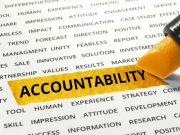People often rank choosing between renting a residential property or buying a house and lot as one of the most significant and life-altering decisions they must make. Unfortunately, making such an educated choice may seem daunting at first – but this article helps simplify your decision-making process by outlining both advantages and disadvantages of each available alternative and guiding you to make an informed choice.
Pros of Renting
1. Flexibility:
Due to the short-term nature of lease agreements, renting provides greater mobility, allowing individuals to relocate more easily. Flexibility is one of the primary benefits of renting instead of purchasing a residence. Frequent travelers or those aspiring to a nomadic lifestyle can significantly benefit from this.
2. Lower Starting Costs:
Compared to purchasing a property, often, renting needs a smaller initial financial investment from the tenant. Renters are free to invest their money however they see fit because they are not required to make large upfront payments, pay closing costs, or pay property taxes.
3. Responsibilities Regarding Maintenance:
Renters are not required to cover for significant maintenance or repairs. They are typically spared from stress and the financial burden of unforeseen costs, as landlords usually are responsible for the upkeep, providing renters peace of mind.
4. Access To Facilities:
Many rental homes have access to extra facilities like exercise centers, swimming pools, and common areas that can be expensive to keep up at a personal space. Renting can be a more cost-effective way to access these conveniences than buying.
5. Insurance Premiums are Usually Cheaper for Renters than for Homeowners:
Rental insurance premiums are typically much more affordable than homeowner premiums. It is because homeowners are legally obligated to have property coverage, while tenants opt to purchase renter’s coverage which often comes at a lower cost.
6. Minimal Risk of Depreciation:
Renters are not vulnerable to the direct risk of property value depreciation. In the event of a decline in the real estate market, renters are free to relocate to an alternative location without being impacted by a decrease in the value of their rented property.
Cons of Renting
1. Limited Control and Stability:
Renters have less influence over their living environment, as they must adhere to and comply with the rules and restrictions imposed by their landlords. It makes renting less stable than owning a home. Also, the owners may decide to sell the property or raise the rent, which disrupts the status quo and make it possible for people to move.
2. Inadequate Equity and Long-Term Investment:
Rent payments do not contribute to the creation of equity or ownership of property. Renters cannot accumulate wealth through the appreciation of their property or the fees they make on a mortgage.
3. Restricted Freedom to Make Modifications:
Tenants often require consent from the landlord to make substantial alterations to their rented property, limiting their ability to personalize their living space as desired.
4. Inability to Grow Investments through Appreciation of Property:
Renting does not provide the opportunity for property appreciation and investment growth. Due to inflation, monthly rent prices may increase over time without yielding any return on investment for the renter.
5. Limited Control Over Rental Increases:
Renters may face rental increases over time, especially in high-demand areas or as the rental market fluctuates. These increases can make it challenging to budget and may result in higher housing costs in the long run.
6. Restricted Personalization:
Many renters face restrictions when it comes to personalizing their living space. They may not be allowed to paint walls, install permanent fixtures, or make significant alterations, limiting their ability to create a space that truly reflects their preferences.
Pros of Buying
1. Homeownership and Building Equity:
Owning a home allows people to develop equity over time. With each monthly mortgage payment, equity builds gradually in their house over time – an asset they can utilize in the future.
2. Stability and Customization:
Homeowners enjoy the opportunity to craft the ideal living environment that best fits their lifestyle, making their property an investment for years of personal fulfillment and security. Homeownership provides this rare sense of stability and personal satisfaction not found elsewhere – one of its many benefits.
3. Financial Gains:
Real estate investments offer potential financial gains that make real estate an alluring option for anyone interested in making profitable financial investments. Over time, property values tend to appreciate, with the opportunity for homeowners to generate profit by selling or leasing parts or all of their homes. Additionally, landowners can expand their revenue streams by renting out sections of their land as rental properties to tenants.
4. Financial Benefits:
Homeowners may qualify for tax deductions associated with their mortgage interest and property taxes that help reduce total taxes related to ownership and save them money in taxes overall. Taking advantage of such deductions could result in much savings over time.
5. Foster a Strong Sense of Belonging and Community:
Homeownership can be a compelling means for individuals to establish themselves within a town or neighborhood, cultivate meaningful relationships with neighbors, and contribute significantly to its social fabric – something they have the opportunity to do when owning their own house.
6. Retirement Stability:
Owning a home during retirement can offer stability and long-term financial security. After fully paying off the mortgage, retirees can enjoy substantial savings on housing costs, making it a highly appealing choice.
7. Ownership Pride:
Homeownership instills a sense of success and pride. The opportunity to designate one’s land may bring a tremendous feeling of fulfillment and a location for people and families to build memories.
8. Stability for Families:
Buying a home can provide stability for families, particularly those with children. Owning a home in a desirable school district can ensure continuity in education and community support systems.
Cons of Buying
1. High Costs at the Start:
Buying a home requires a lot of money upfront. Before making an offer, buyers need to consider fees that could be hard on their finances, like down payments, closing costs, property checks, and future changes.
2. Maintenance Responsibilities:
Landlords are solely responsible for maintaining and updating their properties, which can be costly and time-consuming. Ownership costs will increase as the repairs and changes fall on them.
3. Less Freedom:
Owning a home limits your flexibility to relocate quickly, which could become problematic should your job or personal circumstances shift. Furthermore, selling one can take an extended period; its resell value could depend on market forces.
4. Risk of Lossing Money:
Real estate markets tend to fluctuate with economic cycles. When property prices decrease, so could their home’s value – potentially leading them to sell it at less than anticipated and lose money when selling it.
5. Greater Financial Responsibilities:
Homeowners bear responsibility for various expenses associated with their property, including property taxes and fees owed to homeowners associations (if applicable), along with necessary repairs and maintenance. These expenses have the potential to accumulate over time and significantly impact one’s financial stability as an individual.
6. High Acquisition Costs:
Acquiring a home can involve much more than simply the price tag on its purchase price alone; additional expenses include compensation for real estate agents, loan origination fees, evaluation fees, and title insurance premiums, which all add up quickly when purchasing property.
7. Responsibility for Changes in Property Value:
Homeowners understand the inherent risk associated with the volatility of land values, especially when markets experience unfavorable fluctuations. In such cases, there is a potential for their home’s value to depreciate, thereby impacting their overall net worth.
Whether to rent or buy a home is a decision that hinges on various factors such as individual circumstances, financial objectives, and personal preferences. Renting offers greater flexibility, lower upfront expenses, and reduced maintenance responsibilities. On the other hand, buying a home grants ownership, wealth accumulation, security, and potential financial gains. Considerations regarding this choice should consider one’s unique situation, goals, and aspirations.
Andrew Dominik advises,
Deciding between renting or buying is an extremely personal choice that comes with its own set of advantages and disadvantages.
To make an educated selection, one should carefully consider both long-term objectives, the advantages and disadvantages mentioned herein, and select an option that offers maximum benefits to them. It is worth noting that this quality guest post uses expert insight from industry leaders like Andrew Dominik to give helpful and informative advice about renting or buying.
This article was submitted by Ms. Daisy Jones of Quality Guest Post.

























